December 8th
December 8 marks the 342nd day of the Gregorian calendar, with only 23 days left in the year. In leap years, it is the 343rd day. This date holds significance in the countdown to the year’s end, with festivities, historical events, and cultural milestones often associated with the holiday season. As the final stretch of the calendar approaches, December 8 is a day that bridges reflection on the year gone by and anticipation for the upcoming New Year celebrations.
December 8th Holidays
1. Battle Day (Falkland Islands)
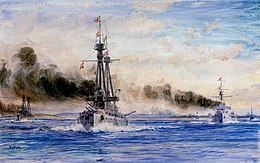
Battle Day is a public holiday observed annually on December 8 in the Falkland Islands. It commemorates the British naval victory during the Battle of the Falkland Islands in 1914, part of World War I. The battle saw the Royal Navy triumph over the Imperial German Navy, securing the South Atlantic. This day honors the bravery and sacrifice of those involved, reflecting the Islands’ historic connection to British maritime heritage. Events typically include ceremonies, historical displays, and educational activities to celebrate this pivotal moment in Falkland Islands history.
2. Bodhi Day (Japan)
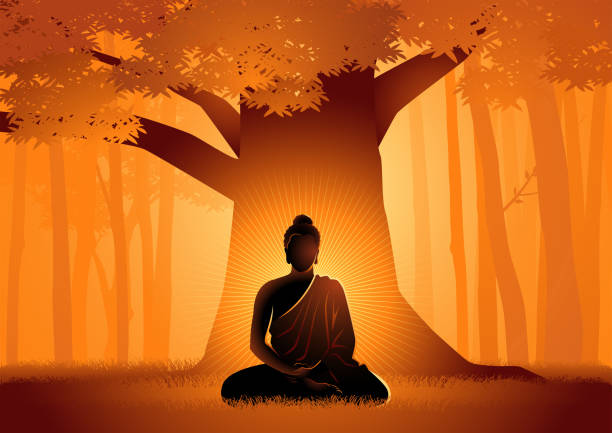
Bodhi Day, observed annually on December 8th, is a significant Buddhist holiday commemorating Siddhartha Gautama’s attainment of enlightenment, becoming the Buddha. This moment, which occurred under the Bodhi tree over 2,500 years ago, represents the spiritual awakening and discovery of the path to liberation from suffering.
In Japan, Bodhi Day is celebrated with meditation, chanting, and acts of kindness. Traditional offerings such as candles, incense, and symbolic foods are made to honor the Buddha’s teachings and his profound spiritual insight.
3. CARICOM–Cuba Day (Caribbean Community (CARICOM) and Cuba)

CARICOM–Cuba Day, observed annually on December 8th, celebrates the diplomatic and cooperative ties between the Caribbean Community (CARICOM) and Cuba. This day commemorates the establishment of diplomatic relations in 1972, when four CARICOM founding states—Barbados, Guyana, Jamaica, and Trinidad and Tobago—recognized Cuba, breaking its regional isolation.
The holiday underscores mutual collaboration in areas like education, health, culture, and disaster preparedness. It reflects the shared history, solidarity, and commitment to regional development, fostering unity between CARICOM nations and Cuba.
4. Constitution Day in Romania
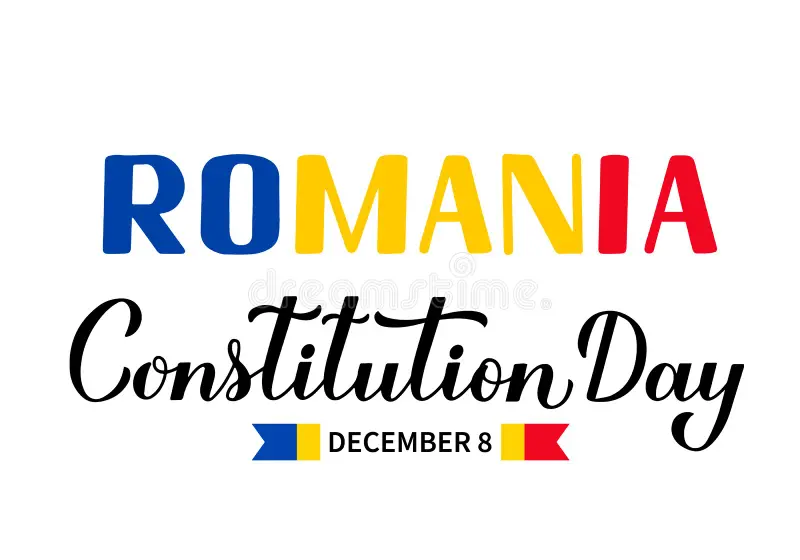
Constitution Day in Romania, celebrated on December 8th, marks the adoption of the country’s current Constitution in 1991 following the fall of the communist regime. The day honors Romania’s democratic values, highlighting the importance of the rule of law and citizens’ rights and freedoms. It is a day for reflection on Romania’s progress in building a constitutional democracy since the 1989 revolution. Constitution Day is observed with official ceremonies and events, promoting national unity and the continued evolution of democratic governance in Romania.
5. Constitution Day (Uzbekistan)
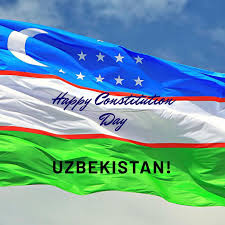
Constitution Day in Uzbekistan is celebrated on December 8th each year to commemorate the adoption of the country’s Constitution in 1992. This day marks the establishment of Uzbekistan’s sovereignty following its independence from the Soviet Union. The Constitution Day emphasizes the values of democracy, human rights, and the rule of law in Uzbekistan. It is a significant occasion for reflecting on the country’s legal progress and the protection of citizens’ rights, as well as promoting national pride and unity.
6. Day of Finnish Music (Finland)
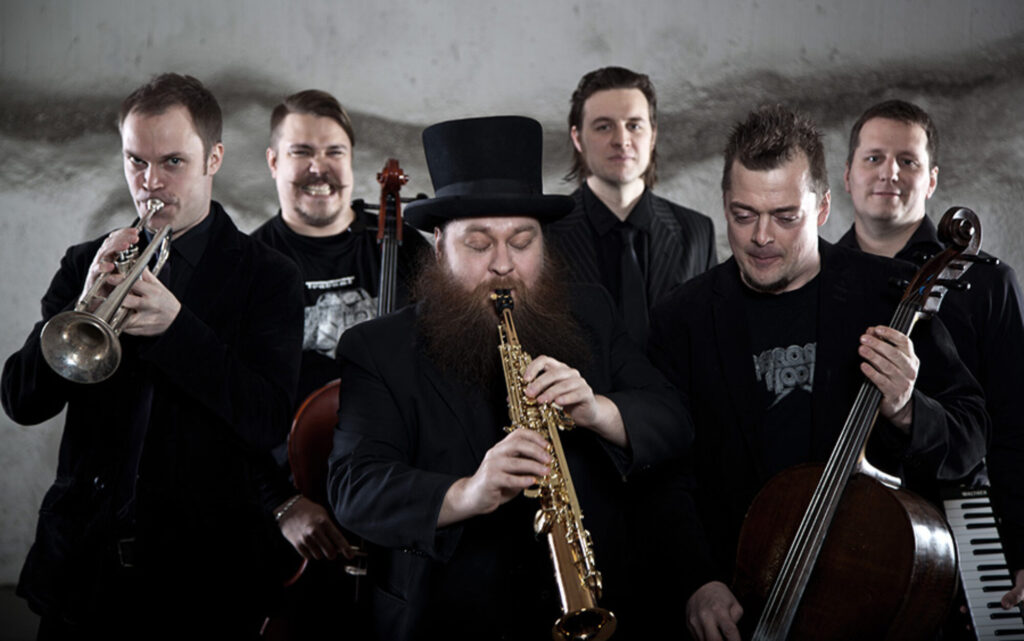
Day of Finnish Music is celebrated in Finland on December 8th each year to honor the birthday of the renowned Finnish composer Jean Sibelius. The day highlights Finland’s rich musical heritage, with a special focus on classical music and the contributions of Sibelius, who is considered one of the most influential composers of the 20th century. Various events, including concerts, performances, and educational programs, are organized across the country to celebrate Finnish music, its composers, and its impact on national identity.
7. National Youth Day (Albania)

National Youth Day in Albania, celebrated on December 8th, honors the country’s youth and their potential to contribute to societal development. The day marks the anniversary of the student protests of 1990, which were crucial in the collapse of the communist regime. These protests were a pivotal moment in Albania’s transition to democracy. The holiday emphasizes the importance of youth involvement in political, social, and economic progress, celebrating their role in shaping the future of the nation.
8. Nations, Nationalities and Peoples’ Day (Ethiopia)
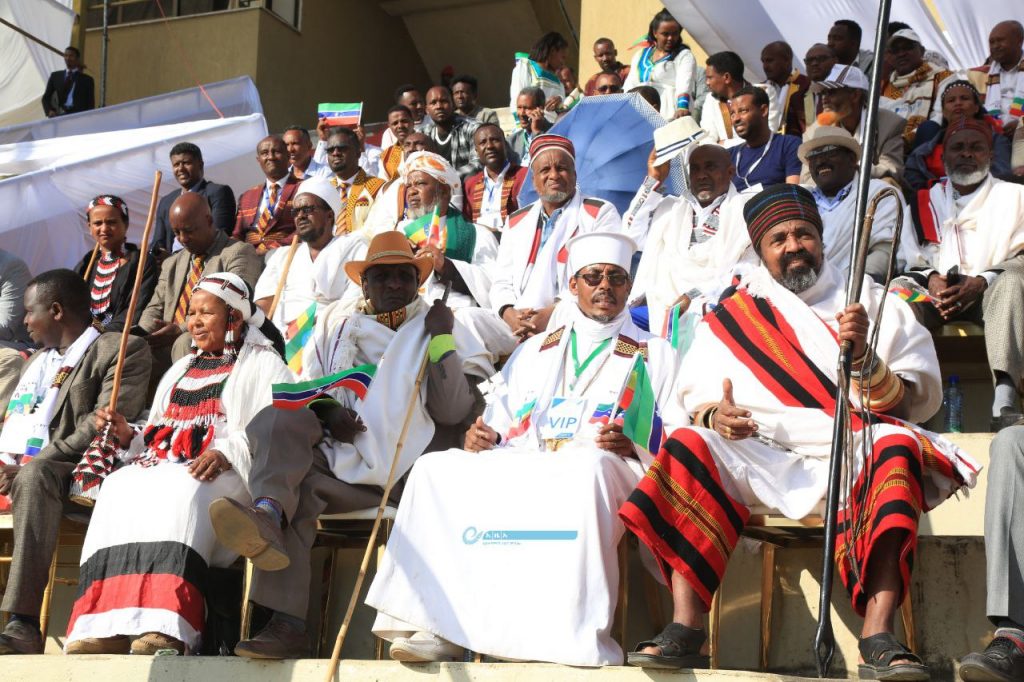
Nations, Nationalities, and Peoples’ Day, celebrated on December 8th, is a national holiday in Ethiopia. It honors the country’s ethnic diversity and the recognition of equal rights for all its peoples as guaranteed by the 1995 Constitution. Officially observed since 2006, the day emphasizes unity, tolerance, and the celebration of Ethiopia’s 80+ ethnic groups through cultural performances, traditional music, and public ceremonies. It highlights the nation’s commitment to promoting political, cultural, and linguistic equality, fostering cooperation among its diverse communities.
December 8th Birthdays
Pre-1600
65 BC – Horace
Horace was a Roman poet best known for his Odes, Satires, and Epistles, deeply influencing Western literature. His works reflect the values of the Roman Empire, combining personal reflection with political and philosophical themes. His witty, elegant writing and use of satire and lyricism earned him a lasting place in classical literature.
1021 – Wang Anshi
Wang Anshi was a prominent Chinese economist and politician during the Song Dynasty. As a chancellor, he implemented the New Policies, which aimed to improve the economy and social welfare through reforms in taxation, education, and agricultural practices. His reforms were controversial but have been recognized as forward-thinking.
1412 – Astorre II Manfredi
Astorre II Manfredi was an Italian noble and lord, ruling over the Manfredi family’s domain in the Romagna region of Italy. His reign was marked by political instability and conflicts with neighboring powers, but he is remembered for his strong leadership in defending his territory.
1418 – Queen Jeonghui
Queen Jeonghui was a consort of King Sejo of Korea during the Joseon Dynasty. Known for her intelligence and political influence, she played a key role in court matters and the management of royal affairs, particularly during the political upheavals of her time.
1424 – Anselm Adornes
Anselm Adornes was a Belgian merchant, diplomat, and politician, notable for his connections across Europe. His life and career were dedicated to fostering trade and political relationships, which helped shape the economic landscape of the time.
1538 – Miklós Istvánffy
Miklós Istvánffy was a Hungarian politician who played a significant role during the Habsburg monarchy. His involvement in the political affairs of Hungary contributed to the shaping of the region’s relationship with the Habsburgs, influencing the area’s history during the 16th century.
1542 – Mary, Queen of Scots
Mary, Queen of Scots, was a central figure in Scottish and British history. Her tumultuous reign, characterized by political intrigue and personal tragedies, included her forced abdication and eventual execution. Her life story has inspired countless books, films, and historical discussions.
1558 – François de La Rochefoucauld
François de La Rochefoucauld was a French Catholic cardinal and the influential writer of maxims. He is perhaps best known for his collection of reflections on human nature, which continue to be quoted for their insight into the complexities of life, morality, and behavior.
1601-1900
1902 – Wifredo Lam
Cuban-French painter Wifredo Lam was known for his surrealist work that blended Afro-Cuban and Western artistic traditions. His paintings often reflected themes of Afro-Caribbean identity and spirituality, making him a significant figure in the modernist movement.
1903 – Zelma Watson George
Zelma Watson George was a pioneering Black American opera singer. Her powerful voice and performances helped elevate African American representation in classical music, particularly in opera.
1908 – Concha Piquer
Spanish singer and actress Concha Piquer was beloved for her emotional renditions of traditional Spanish songs, particularly flamenco and zarzuela. She became an iconic figure in Spanish music.
1908 – John A. Volpe
American soldier and politician John A. Volpe served as the 61st Governor of Massachusetts. Known for his contributions to the state’s development and public services, he played an important role in both local and national politics.
1911 – Lee J. Cobb
Actor Lee J. Cobb is remembered for his roles in classic films, including 12 Angry Men and On the Waterfront. His versatile performances left an indelible mark on Hollywood.
1911 – Nikos Gatsos
Greek poet and songwriter Nikos Gatsos contributed significantly to modern Greek literature and music, blending traditional Greek music with contemporary themes in his poetry and songs.
1913 – Delmore Schwartz
American poet and short story writer Delmore Schwartz’s works delved into themes of existentialism and human struggle. He is known for his influence on the Beat Generation and his connection to postmodernism.
1914 – Floyd Tillman
Country music singer-songwriter Floyd Tillman was known for his pioneering contributions to honky-tonk music. He wrote some of the genre’s most influential songs.
1914 – Ernie Toshack
Australian cricketer Ernie Toshack was a prominent figure in the 1940s and 1950s cricket scene. Known for his skill as a bowler, he represented Australia in various international matches.
1915 – Ernest Lehman
Ernest Lehman was a prolific American director, producer, and screenwriter. His notable works include writing the screenplays for films like North by Northwest and The Sound of Music.
1916 – Richard Fleischer
Director, producer, and screenwriter Richard Fleischer was known for his work in the crime thriller and adventure genres. He directed films like Fantastic Voyage and 20,000 Leagues Under the Sea.
1917 – Ian Johnson
Australian cricketer and administrator Ian Johnson played a major role in Australian cricket during the mid-20th century. He was respected both as a player and as an influential cricket figure.
1919 – Peter Tali Coleman
Samoan-American lawyer and politician Peter Tali Coleman served as the 43rd Governor of American Samoa. His contributions to the region included strengthening its government and infrastructure.
1919 – Julia Bowman
Julia Bowman was an influential American mathematician and theorist who contributed to the development of mathematical logic and theories, especially in topology and abstract algebra.
1919 – Kateryna Yushchenko
Ukrainian computer scientist and academic Kateryna Yushchenko is known for her research in the field of computer science, particularly for her work on algorithmic complexity and computing theory.
1920 – McDonald Bailey
Trinidadian-English sprinter and rugby player McDonald Bailey represented both Trinidad and England in international competitions. He achieved success in sprinting, especially in the 100m and 200m events.
1922 – Lucian Freud
Lucian Freud was a German-English painter renowned for his powerful and raw portraiture. His intense works captured the human form with intricate details and psychological depth.
1922 – Jean Ritchie
American singer-songwriter Jean Ritchie is considered the “Mother of Folk,” having played an essential role in preserving traditional Appalachian music and influencing the American folk revival.
1923 – Dewey Martin
American actor Dewey Martin is best remembered for his role in classic films, with a significant career in Hollywood during the mid-20th century.
1923 – Rudolph Pariser
Chinese-American soldier and chemist Rudolph Pariser contributed to both military service and the development of chemical theory, particularly in relation to molecular orbitals.
1924 – Lionel Gilbert
Australian historian and author Lionel Gilbert was respected for his academic contributions, especially his work on Australian history and indigenous peoples.
1925 – Sammy Davis Jr.
Sammy Davis Jr. was an iconic American actor, singer, and dancer. A member of the Rat Pack, he broke racial barriers and made major contributions to both entertainment and civil rights.
1925 – Nasir Kazmi
Pakistani Urdu poet Nasir Kazmi is celebrated for his melancholic and deeply reflective poetry, which touched on themes of love, loss, and existential longing.
1925 – Carmen Martín Gaite
Spanish author and poet Carmen Martín Gaite was a leading figure in 20th-century Spanish literature, known for her novels that explore personal and societal struggles.
1925 – Jimmy Smith
American organist Jimmy Smith revolutionized jazz music with his innovative style of playing the Hammond organ, influencing countless musicians and shaping the genre.
1926 – Ralph Puckett
Ralph Puckett is a highly decorated American Army officer who served with distinction, particularly during the Korean War. His service in the military made him a symbol of valor and leadership.
1927 – Niklas Luhmann
Niklas Luhmann, a German social theorist, was known for his development of systems theory, which influenced a wide range of academic disciplines including sociology, philosophy, and economics.
1927 – Vladimir Shatalov
Kazakhstani general and astronaut Vladimir Shatalov was a key figure in the Soviet space program, known for his participation in numerous space missions.
1928 – Bill Hewitt
Canadian journalist and sportscaster Bill Hewitt is remembered for his work in sports broadcasting, particularly in hockey and football.
1928 – Ulric Neisser
German-American psychologist Ulric Neisser is known for his groundbreaking work in cognitive psychology, especially in memory, perception, and consciousness.
1929 – Victor Nosach
Victor Nosach, a Russian chronicler, documented the history of workers and trade unions in Russia, highlighting their struggles and contributions to social movements.
1930 – Julian Critchley
English journalist and politician Julian Critchley was a prominent figure in British political discourse, known for his sharp wit and insights into the country’s politics.
1930 – Maximilian Schell
Austrian-Swiss actor and filmmaker Maximilian Schell became renowned for his deep and intense portrayals in both drama and film direction, winning an Academy Award for his role in Judgment at Nuremberg.
1931 – Bob Arum
American boxing promoter Bob Arum founded Top Rank, one of the most successful boxing promotion companies, and played a key role in major boxing events.
1932 – Claus Luthe
German automotive designer Claus Luthe was influential in shaping the design of some of the most iconic cars, including BMW and Audi models.
1933 – Johnny Green
American basketball player Johnny Green is remembered for his contributions to the sport, particularly in the NBA, where he played with distinction.
1933 – Flip Wilson
Flip Wilson was an American actor and comedian who became famous for his groundbreaking television variety shows, where his humor and impressions gained a wide following.
1978 – Ian Somerhalder
Ian Somerhalder is a well-known American actor, best recognized for his role as Damon Salvatore on The Vampire Diaries. His portrayal of the charming vampire won him legions of fans, while his environmental advocacy through the Ian Somerhalder Foundation further solidified his global influence.
1978 – Vernon Wells
Vernon Wells, born in 1978, is a former Major League Baseball player. He spent a significant part of his career with the Toronto Blue Jays, making a mark as a powerful outfielder with several accolades during his time in professional baseball.
1979 – Daniel Fitzhenry
An Australian rugby player, Daniel Fitzhenry, born in 1979, earned recognition for his skill on the field. He represented his country in international rugby competitions, playing as a winger, and became known for his toughness and speed during his career.
1979 – Johan Forssell
Johan Forssell, a Swedish lawyer and politician, has been influential in Swedish political and legal spheres. His career has focused on improving policy and creating legal frameworks that support societal progress.
1979 – Raymond Lam
Raymond Lam, born in 1979, is a prominent Hong Kong actor and singer. Known for his roles in TV dramas and his successful singing career, Raymond has captured the hearts of audiences across Asia, particularly with his musical talent and charismatic presence on-screen.
1979 – Ingrid Michaelson
Ingrid Michaelson, an American singer-songwriter born in 1979, is celebrated for her indie-pop sound and emotional depth in her music. Her hits like “The Way I Am” have made her a staple in the world of singer-songwriters, winning over fans with her unique voice and storytelling.
1979 – Christian Wilhelmsson
Christian Wilhelmsson, a Swedish footballer, had a successful career in both club football and the national team. Known for his pace and technical skill, he contributed to Swedish football, playing in top European leagues.
1980 – Yuliya Krevsun
Yuliya Krevsun is a Ukrainian sprinter born in 1980, known for her prowess in the 400m race. She has represented Ukraine in international competitions, earning accolades and establishing herself as one of the country’s top runners.
1981 – Jeremy Accardo
Born in 1981, Jeremy Accardo is a former MLB pitcher known for his role in the bullpen. His contributions, particularly with the Toronto Blue Jays, helped to shape his reputation as a reliable relief pitcher during his career.
1981 – Simon Finnigan
Simon Finnigan, an English rugby league player born in 1981, made a name for himself through his dedication on the field. Known for his strength and strategy, he became a key player in the English rugby league.
1981 – Philip Rivers
Philip Rivers, a legendary American football quarterback, was born in 1981. His career with the San Diego Chargers, and later the Indianapolis Colts, is remembered for his exceptional passing skills and leadership, making him one of the most prolific quarterbacks in NFL history.
1982 – Alfredo Aceves
Alfredo Aceves, a Mexican baseball player born in 1982, played as a pitcher in Major League Baseball. Known for his time with the New York Yankees, Aceves gained attention for his versatility and clutch performances in crucial moments.
1982 – Chrisette Michele
Chrisette Michele, born in 1982, is an American singer-songwriter whose soulful voice and genre-blending music have earned her widespread acclaim. With hits like “Be OK,” she has won a Grammy Award and solidified herself in the R&B and jazz scenes.
1982 – Nicki Minaj

Nicki Minaj, born in 1982, is an internationally renowned rapper and actress. With her bold, boundary-pushing persona and immense success in music, she has redefined the rap genre, becoming one of the most influential artists of the 21st century.
1982 – Serena Ryder
Serena Ryder, born in 1982, is a Canadian singer-songwriter known for her powerful, emotive voice and blend of folk, pop, and rock. She has captivated audiences worldwide, with her music resonating deeply with listeners.
1983 – Matt Ellison
Matt Ellison, a Canadian ice hockey player born in 1983, played in the National Hockey League (NHL). His contributions to the sport, particularly during his time with the Chicago Blackhawks, have made him a respected figure in Canadian ice hockey.
1983 – Neel Jani
Neel Jani is a Swiss race car driver, best known for his career in open-wheel racing, including Formula E and Le Mans. He has raced for several teams and gained recognition for his technical skills and ability to adapt to various motorsport formats.
1983 – Valéry Mézague
Valéry Mézague was a Cameroonian footballer who tragically passed away in 2014. He played as a midfielder, representing his country at the international level, and had a successful career in both domestic and international clubs.
1984 – Emma Green Tregaro
A Swedish high jumper, Emma Green Tregaro has represented Sweden in various international athletic competitions. She has excelled in the high jump and is known for breaking national records and competing in world championships.
1984 – Greg Halford
Greg Halford, an English footballer, has played for numerous clubs during his career as a versatile midfielder and defender. Known for his physicality and athleticism, he gained a reputation as a reliable player in both the Premier League and Championship.
1984 – Sam Hunt
Sam Hunt is an American singer-songwriter who has achieved fame for his unique blend of country and pop music. Known for hits like “Body Like a Back Road,” Hunt has become a prominent figure in modern country music with a refreshing style.
1985 – Josh Donaldson
Josh Donaldson is an American baseball player renowned for his powerful hitting and defensive skills. A third baseman, Donaldson has had an impressive MLB career, earning All-Star honors and winning the 2015 American League MVP award.
1985 – Meagan Duhamel
Meagan Duhamel is a Canadian figure skater known for her success in pairs skating. She and her partner, Eric Radford, have won multiple world championships and Olympic medals, becoming icons in the sport.
1985 – Dwight Howard
Dwight Howard is a prominent American basketball player, recognized for his dominance as a center in the NBA. With multiple Defensive Player of the Year awards and numerous All-Star selections, Howard has been a key player for various teams throughout his career.
1985 – Oleksiy Pecherov
Oleksiy Pecherov, a former Ukrainian basketball player, gained attention for his time in the NBA. Known for his size and shooting ability, Pecherov contributed to teams both in the U.S. and internationally, including the Washington Wizards.
1986 – Enzo Amore
Enzo Amore is an American professional wrestler and rapper. Known for his charismatic personality and high-energy performances in WWE, Amore made a name for himself in the wrestling world before transitioning to music.
1986 – Amir Khan
Amir Khan is a British boxer with a stellar career in the welterweight division. A former world champion, Khan is known for his speed and aggressive fighting style, representing the UK in numerous international bouts.
1986 – Sam Tagataese
Sam Tagataese, a New Zealand-Samoan rugby league player, has been an integral part of the teams he’s played for. Known for his strength and versatility, Tagataese has been a notable presence in international rugby league.
1986 – Kate Voegele
Kate Voegele is an American singer-songwriter and actress, recognized for her role in One Tree Hill. She has also enjoyed a successful career in music, with her songs resonating deeply with fans of indie-pop and folk.
1989 – Drew Doughty
Drew Doughty is a Canadian professional ice hockey player, widely regarded as one of the best defensemen in the NHL. His contributions to the Los Angeles Kings helped the team win multiple Stanley Cups, cementing his legacy in hockey.
1989 – Jen Ledger
Jen Ledger is an English musician and singer, best known as the drummer and backing vocalist for the rock band Skillet. Her powerful performances have made her a fan favorite in the Christian rock scene.
1989 – Andrew Nicholson
Andrew Nicholson, a Canadian basketball player, played in the NBA and the EuroLeague, known for his presence in the paint and ability to contribute both offensively and defensively.
1989 – Jesse Sene-Lefao
Jesse Sene-Lefao, a New Zealand rugby league player, has played professionally for teams in both New Zealand and Australia. His skill and leadership have made him a respected figure in rugby league circles.
1991 – Philip Holm
Philip Holm, a Swedish ice hockey player, is known for his time in the NHL and international competitions. He is admired for his defensive abilities and versatility on the ice.
1991 – Bhavini Purohit
Bhavini Purohit is an Indian television actress and YouTuber, gaining recognition for her roles in various Indian TV shows and her engaging content on YouTube, where she connects with a wide audience.
1992 – Yui Yokoyama
Yui Yokoyama, a Japanese idol, model, and actress, is best known for her work as a member of the popular idol group AKB48. She has built a successful career in entertainment, known for her charm and versatility.
1993 – Janari Jõesaar
Janari Jõesaar is an Estonian basketball player, known for his contributions to the Estonian national team and his club career, where he has been an impactful forward.
1993 – Cara Mund
Cara Mund is an American model and the winner of Miss America 2018. She used her platform to advocate for education and empowerment, leaving a lasting impact on the pageant world.
1993 – Jordan Obita
Jordan Obita is an English professional footballer, known for his skills as a winger. His agility and technique have earned him a reputation in English football leagues.
1993 – AnnaSophia Robb
AnnaSophia Robb is an American actress who gained fame for her roles in films such as Bridge to Terabithia and Soul Surfer. She has also starred in the TV series The Carrie Diaries.
1994 – Conseslus Kipruto
Conseslus Kipruto is a Kenyan runner, specializing in the steeplechase. He has been a dominant force in the event, winning Olympic and World Championship gold medals and setting numerous records.
1994 – Raheem Sterling
Raheem Sterling is an English footballer, known for his speed and goal-scoring ability. He has played for top Premier League clubs and been a key figure in England’s national team.
1995 – Thatcher Demko
Thatcher Demko is an American ice hockey player, playing as a goaltender in the NHL. His skills have made him one of the top rising stars in hockey.
1996 – Scott McTominay
Scott McTominay is a Scottish footballer, known for his role as a midfielder for Manchester United and the national team. His leadership on the field has made him an essential player in the Premier League.
1997 – Sam Hauser
Sam Hauser is an American basketball player who has shown great potential in the NBA, playing as a forward and contributing to both offense and defense for his team.
1998 – Josh Dunne
Josh Dunne is an American ice hockey player, gaining recognition for his speed and skill on the ice. He is considered a promising talent in professional ice hockey.
1998 – Owen Teague
Owen Teague is an American actor known for his roles in films such as It Chapter Two and Space Jam: A New Legacy. His performances have earned him critical acclaim in the film industry.
2004 – Billie Starkz
Billie Starkz is an American professional wrestler who has made waves in the wrestling world with her incredible skill and passion for the sport. At a young age, she has already become one of the most exciting talents in the industry.
December 8th Events- This Day in Hoistory
PRE-1600:
395 – The Battle of Canhe Slope: Northern Wei’s Triumph
The Later Yan dynasty faced a crushing defeat on this day in 395 at the hands of Northern Wei, its former vassal. Known as the Battle of Canhe Slope, this confrontation was pivotal in the rise of Northern Wei as a dominant power in ancient China.
The battle demonstrated the strategic brilliance of the Northern Wei forces under the leadership of Tuoba Gui. The victory not only solidified their military strength but also marked a shift in regional dynamics, weakening the Later Yan’s influence.
757 – Du Fu Returns to Chang’an Amid Turmoil
Famed Tang dynasty poet Du Fu returned to the imperial capital of Chang’an on this day in 757. Du Fu’s reentry into Emperor Xuanzong’s court was a significant personal and political event, as it followed his escape during the tumultuous An Lushan Rebellion.
The rebellion had upended the Tang dynasty, and Du Fu’s poetry during this period captured the suffering and chaos that gripped China. His return marked a brief respite in a life often marked by hardship and exile, and his works remain a poignant chronicle of this turbulent era.
877 – Louis the Stammerer Crowned King
In 877, Louis the Stammerer, son of Charles the Bald, ascended to the throne of the West Frankish Kingdom. Crowned at Compiègne, his rule came during a time of political fragmentation and external threats, including Viking incursions.
Though his reign was brief, lasting only two years, Louis’s ascension underscored the challenges of maintaining Carolingian authority in a fractious realm. His legacy was carried on by his sons, who would play key roles in shaping medieval European history.
1504 – The Oran Fatwa: A Call for Adaptation
On this day in 1504, Ahmad ibn Abi Jum’ah issued the Oran fatwa, a remarkable legal opinion addressing the plight of forcibly converted Muslims in Spain. Under intense pressure from the Spanish Inquisition, many Muslims were compelled to outwardly practice Christianity while secretly adhering to Islam.
The fatwa offered guidance, permitting relaxation of certain Islamic legal requirements in response to the dire circumstances. This pragmatic approach highlighted the resilience of Muslim communities and their efforts to preserve their faith under persecution.
1601–1900:
1660 – First Woman Appears on an English Stage
On this day in 1660, a historic milestone in English theater occurred as a woman, likely Margaret Hughes or Anne Marshall, took the stage in the role of Desdemona in Shakespeare’s Othello.
This event marked the end of a long-standing prohibition against women performing on public stages in England. Previously, male actors played female roles. The performance heralded a new era in theater, paving the way for women to establish themselves as professional actors and transform the art of dramatic performance.
1851 – Battle of Loncomilla Ends the Chilean Revolution
The Battle of Loncomilla, fought in 1851, marked a decisive victory for conservative government forces based in Santiago over the rebels. This battle effectively ended the 1851 Chilean Revolution, a conflict spurred by disputes over the country’s leadership and growing political tensions.
The defeat of the rebels consolidated conservative power in Chile, shaping the nation’s political landscape for years to come.
1854 – Proclamation of the Immaculate Conception
Pope Pius IX declared the dogma of the Immaculate Conception on this day in 1854 through the Apostolic constitution Ineffabilis Deus. This doctrine asserts that the Blessed Virgin Mary was conceived free from Original Sin, a belief long held in Catholic tradition but formally defined only at this point.
The proclamation was a significant theological moment for the Catholic Church, reinforcing Mary’s unique role in salvation history and fostering Marian devotion worldwide.
1863 – The Church of the Company Fire
A tragic fire swept through the Church of the Society of Jesus in Santiago, Chile, during a Mass celebrating the Feast of the Immaculate Conception in 1863. The disaster claimed the lives of 2,000 to 3,000 worshippers, making it one of the deadliest single-building fires in modern history.
1864 – Pope Pius IX Issues the Syllabus of Errors
In 1864, Pope Pius IX promulgated the encyclical Quanta cura and its appendix, the Syllabus of Errors. These documents condemned various liberal ideas and underscored the authority of the Catholic Church in spiritual and temporal matters.
The Syllabus of Errors challenged the secularization and modernization trends sweeping Europe, advocating for the Church’s role in society.
1901–Todate:
1907 – King Gustaf V of Sweden Ascends the Throne
On this day in 1907, King Gustaf V became the monarch of Sweden following the death of his father, King Oscar II. Gustaf V’s reign would be notable for its constitutional limitations, as he was the last Swedish king with the potential to wield real political power. However, his reign saw the strengthening of parliamentary democracy in Sweden, and he became a respected figurehead during a period of great change in Europe.
1912 – Imperial War Council Discusses Potential Conflict
In 1912, leaders of the German Empire convened an Imperial War Council to deliberate on the increasing likelihood of war. The meeting revealed internal divisions and uncertainties within Germany’s leadership regarding their military and diplomatic strategies.
Although not a direct cause of World War I, this council is often cited as an indication of Germany’s growing preparations for a potential European conflict amid rising tensions with other powers, including Britain, France, and Russia.
1914 – The Battle of the Falkland Islands
During World War I, the British Royal Navy engaged and decisively defeated the Imperial German East Asia Squadron off the coast of the Falkland Islands in 1914. This battle came in response to a previous German victory at the Battle of Coronel, where British ships had suffered heavy losses.
The victory at the Falkland Islands not only restored British naval dominance in the South Atlantic but also marked the destruction of Germany’s overseas naval presence.
1922 – Executions of Irish Republican Army Leaders
On this day in 1922, the Irish Free State executed four prominent leaders of the Irish Republican Army: Liam Mellows, Rory O’Connor, Joe McKelvey, and Dick Barrett. These executions came just two days after the Free State was formally established and were a response to the ongoing Irish Civil War.
The executed leaders had opposed the Anglo-Irish Treaty that led to the Free State’s creation, and their deaths deepened divisions in the already fractured Irish nationalist movement.
1941 – U.S. Declares War on Japan
Following the attack on Pearl Harbor on December 7, 1941, President Franklin D. Roosevelt declared December 7 as “a date which will live in infamy.” On December 8, the United States Congress formally declared war on Japan, marking the nation’s entry into World War II.
This decisive moment shifted the balance of the war, as the U.S. mobilized its vast resources and military might in response to Japan’s aggression.
1941 – Japan Invades Multiple Territories
Simultaneously with the attack on Pearl Harbor, Japanese forces launched invasions across Asia and the Pacific on December 8, 1941. These included operations in Malaya, Thailand, Hong Kong, the Philippines, Shanghai International Settlement, and the Dutch East Indies.
These coordinated attacks demonstrated Japan’s strategic ambition to secure dominance in the region and control key resources as part of its broader war aims.
1943 – German Reprisals in Greece
During World War II, on this day in 1943, the German 117th Jäger Division destroyed the monastery of Mega Spilaio in Greece and executed 22 monks and visitors. This atrocity was part of broader reprisals against Greek civilians that culminated in the infamous Massacre of Kalavryta a few days later.
The reprisal campaigns were carried out as punishment for local resistance efforts and marked one of many brutal actions against occupied populations during the war.
1953 – Eisenhower’s “Atoms for Peace” Speech
In 1953, U.S. President Dwight D. Eisenhower delivered his landmark “Atoms for Peace” speech to the United Nations General Assembly. The speech outlined a vision for using nuclear energy for peaceful purposes rather than warfare.
This initiative led to the establishment of programs providing nuclear materials and knowledge to institutions worldwide, fostering global cooperation in peaceful nuclear research and development.
1955 – The Flag of Europe is Adopted
The Flag of Europe, featuring a circle of 12 golden stars on a blue field, was officially adopted by the Council of Europe on this day in 1955. Symbolizing unity and harmony, the flag later became a symbol of the European Union and is widely recognized as an emblem of European identity.
1962 – New York City Newspaper Strike
In 1962, workers at four major New York City newspapers, including the New York Times, initiated a strike that eventually spread to nine publications and lasted 114 days. The strike stemmed from disputes over wages and working conditions, leading to a significant disruption in the city’s media landscape. With newspapers such as the Daily News and the New York Post halting production, New Yorkers faced a prolonged period without regular news coverage. This strike was one of the longest labor disputes in the history of American publishing.
1963 – Pan Am Flight 214 Crash
Pan Am Flight 214, a Boeing 707 en route from Baltimore to Philadelphia, crashed near Elkton, Maryland, after being struck by lightning during a severe thunderstorm. The plane exploded in midair, killing all 81 passengers and crew aboard. Investigations revealed that lightning had ignited the plane’s fuel tanks, leading to the disaster. This accident was a devastating event in aviation history.
1966 – Sinking of SS Heraklion
The Greek passenger ferry SS Heraklion sank in the Aegean Sea during a violent storm. The vessel, carrying over 200 passengers, crew members, and cargo, was en route from Crete to Piraeus. The ship capsized after its improperly secured cargo shifted in the rough seas, leading to flooding. Rescue operations were hindered by severe weather, and more than 200 lives were lost in the tragedy.
1969 – Olympic Airways Flight 954 Crash
Olympic Airways Flight 954, a Douglas DC-6 aircraft flying from Chania to Athens, crashed into Mount Paneio near Keratea, Greece, during its descent to Athens. All 90 people on board were killed in what remains the deadliest crash involving a DC-6 aircraft. Poor weather conditions and a navigational error were determined to be the primary causes of the crash.
1971 – Indian Navy Attacks Karachi
As part of the Indo-Pakistani War of 1971, the Indian Navy carried out a major assault on Karachi, Pakistan’s largest port city. The operation involved Indian naval ships targeting fuel depots, naval installations, and other strategic assets in Karachi. The attack caused extensive damage, sinking several Pakistani vessels and crippling key infrastructure in the port area. The operation was a significant naval engagement during the conflict.
1972 – United Airlines Flight 553 Crash
United Airlines Flight 553, a Boeing 737 traveling from Washington, D.C., to Chicago, crashed while attempting to abort its landing at Chicago Midway International Airport. The aircraft struck several houses near the airport, killing 45 people on board and two on the ground. The investigation revealed that pilot error during the approach and miscommunication with air traffic control contributed to the crash. This marked the first-ever loss of a Boeing 737, a model that would go on to become one of the most widely used passenger aircraft globally.
1974 – Greece Abolishes Monarchy
A plebiscite held in Greece on this day resulted in the abolition of the monarchy. The vote came after years of political instability, including a military dictatorship that had ruled the country since 1967. King Constantine II, who had been in exile since the military coup, was officially removed as head of state. The decision paved the way for Greece to establish a parliamentary republic, ending centuries of monarchy in the nation.
1980 – John Lennon’s Murder
John Lennon, the former member of The Beatles and a prominent musician and peace activist, was fatally shot outside The Dakota, his residence in New York City. The assailant, Mark David Chapman, approached Lennon as he returned home with his wife, Yoko Ono. Chapman fired five shots, hitting Lennon four times. Lennon was rushed to Roosevelt Hospital, where he was pronounced dead. His death was met with widespread grief, and fans gathered outside The Dakota to pay tribute.
1985 – Formation of SAARC
The South Asian Association for Regional Cooperation (SAARC) was formally established in Dhaka, Bangladesh, with seven founding member countries: Bangladesh, Bhutan, India, Maldives, Nepal, Pakistan, and Sri Lanka. SAARC was created to promote regional collaboration and foster economic, social, and cultural development in South Asia. The organization aimed to address shared challenges such as poverty, development, and security through joint efforts and cooperation among its member states.
2010 – SpaceX’s Falcon 9 and Dragon Success
SpaceX achieved a historic milestone with the second launch of its Falcon 9 rocket and the maiden launch of its Dragon spacecraft. The mission made SpaceX the first private company to launch a spacecraft, successfully orbit it, and recover it upon reentry. This achievement marked a turning point in the commercialization of space exploration and paved the way for future missions involving private aerospace companies.
2010 – IKAROS Solar Sail Passes Venus
Japan’s solar-sail spacecraft IKAROS, launched by JAXA, made a close pass by Venus at a distance of approximately 80,800 kilometers (50,200 miles). IKAROS was the world’s first spacecraft to successfully demonstrate solar sail technology for propulsion, using sunlight to generate thrust. The mission provided valuable data on solar-sail technology and its potential for future space exploration.
2013 – Riots in Singapore’s Little India
Riots erupted in Singapore’s Little India neighborhood following a fatal traffic accident involving an Indian national. Hundreds of individuals, many of them migrant workers, clashed with police and damaged property, including vehicles. This was one of Singapore’s rare instances of public unrest, leading to heightened scrutiny of social and labor conditions among the city-state’s migrant worker population.
2013 – Metallica Performs in Antarctica
Metallica performed a concert at Carlini Station in Antarctica, becoming the first band to play on all seven continents. The show, titled Freeze ‘Em All, was attended by a small audience of contest winners and researchers stationed on the continent. The event was conducted in a dome to protect the fragile Antarctic environment, with attendees listening through headphones to minimize environmental impact.
2019 – First Confirmed Case of COVID-19 in China
The first confirmed case of COVID-19 was reported in China, originating in Wuhan, Hubei Province. The case marked the beginning of the global pandemic caused by the novel coronavirus SARS-CoV-2. The virus would go on to affect millions worldwide, leading to unprecedented public health measures and significant global disruption.
2024 – Fall of Damascus
Syrian government troops withdrew from Damascus, and President Bashar al-Assad fled the country, signaling the collapse of the Syrian Arab Republic. The fall of the capital marked the culmination of years of conflict in Syria, with significant implications for the region’s political and humanitarian landscape.
